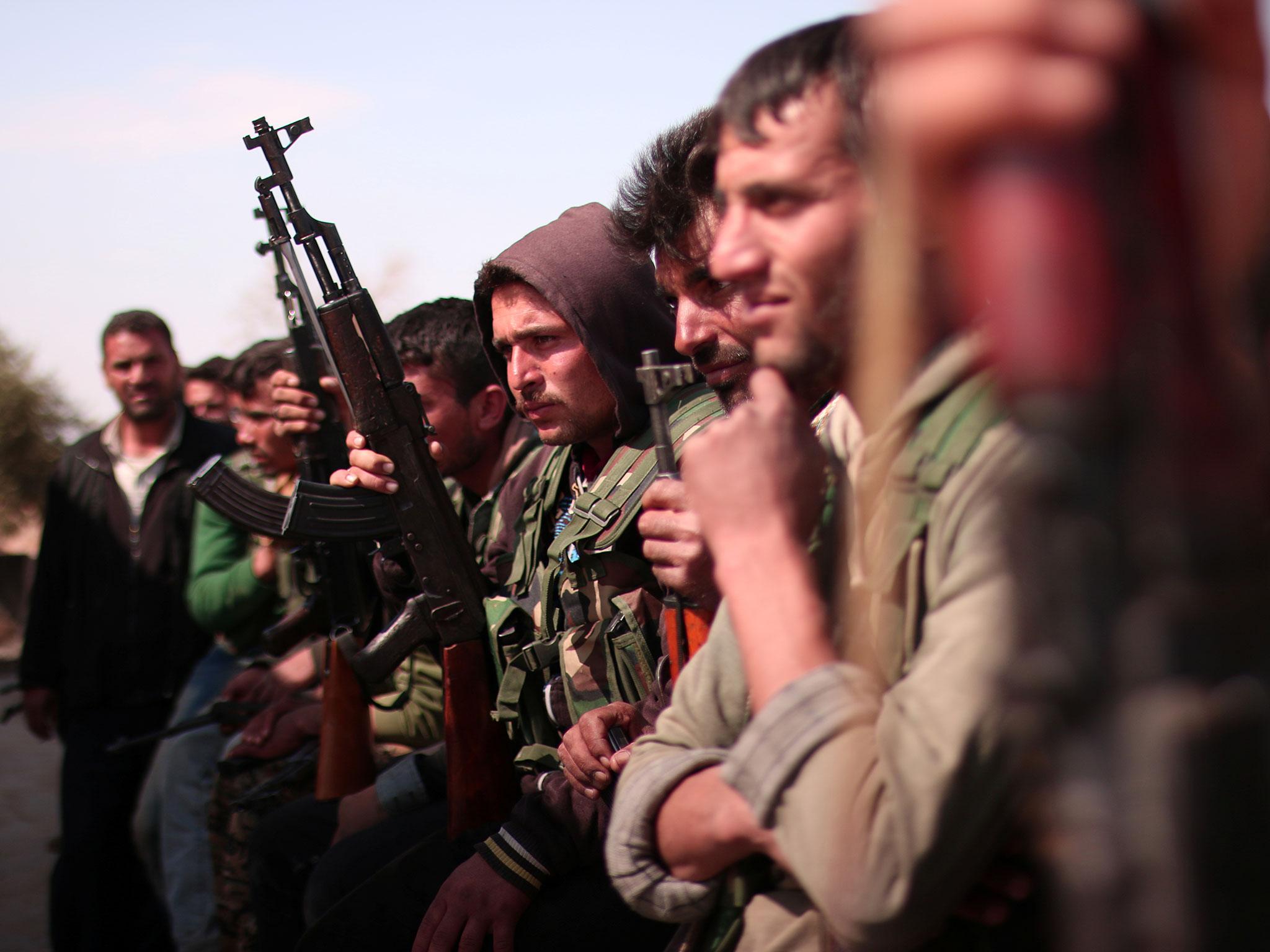Fears for civilians caught up in US-led air strikes grow as Raqqa assault begins
War monitor reports 21 people already killed in intense shelling as battle for Isis’s last stronghold finally gets under way

At least 21 civilians have reportedly died fleeing intense US-led bombing and artillery fire as the battle for the capital of Isis’s so-called caliphate finally begins.
The Syrian Democratic Forces (SDF) Kurdish-Arab coalition announced on Tuesday that an assault on Raqqa from the north, east and west began on Monday, and troops had already managed to enter the city’s eastern gate.
Families trying to escape the all-out attack were killed on Monday night on boats on the Euphrates River, both Syrian state media and opposition war monitor the Syrian Observatory for Human Rights said. Women and children were reportedly among the dead.
Unverified reports from local sources said another 12 were killed in strikes last Friday.
While Friday’s deaths were not definitively confirmed by either US Central Command or sources on the ground, they would not be out of the ordinary. AirWars, a non-profit monitor which tracks the international coalition’s war against Isis, said there has been a 400 per cent increase in civilian casualties caused by US-led bombing since the twin assaults on Raqqa and Mosul in neighbouring Iraq got underway last autumn.
The battle for Isis’s last stronghold of Raqqa – designed to dovetail with the final stages of the campaign for Mosul – is expected to be long and bloody.
The Kurdish-Arab coalition of ground fighters has been slowly tightening the siege around jihadi militants in the northern city since November, assisted by coalition air strikes.
Those strikes have intensified in recent weeks – and caused more and more civilian deaths in the process. According to data from AirWars, at least 220 civilians are estimated to have been killed in May alone.
Western coalition bombing of Isis targets is conducted without the consent of the Syrian government, with which the US does not have official diplomatic ties, and has long been criticised by human rights groups for causing unnecessary loss of life.
Central Command’s own tally of civilian casualties is usually far lower than estimates made by NGOs and monitors on the ground.
“We have been expressing concern for some months already at the steeply escalating death toll before the assault proper began yesterday,” Chris Woods, AirWar’s director, told The Independent.
“We would not have expected this six months ago. All we can do, going on the data we have, is assume that some protections for civilians may have been lifted for the Raqqa assault.”
US President Donald Trump promised on the election campaign trail to to focus his foreign policy on eliminating the group, and his administration has given the Pentagon greater executive control over anti-Isis military operations.
Defence Secretary James Mattis said last week that the US is “accelerating the tempo” of the fight against Isis and the battle has shifted from attrition to “annihilation tactics”.
While US forces operating in Syria and Iraq do “do everything humanly possible” to prevent the loss of innocent life, “civilian casualties are a fact of life in this sort of situation,” he added.
Faced with a fight to the death with no prospect of surrender, Isis are more likely than ever to use Raqqa’s 220,000 civilians as human shields.
“We’ve already seen in Mosul the coalition using very high concentrations of firepower on densely populated areas,” Mr Woods continued. “The concerns we have for Raqqa are even greater.”
Unlike in the battle for Mosul, the US and SDF forces are not local, do not know the area, and are not working with a cooperative government.
The ensuing lack of access for humanitarian agencies and international media means that both ground and air force actions will not be subject to the same level of scrutiny as the US-backed Iraqi coalition forces.
“There has been a worrying number of civilians killed from coalition airstrikes across Raqqa in recent months and the UN reported schools and health clinics in the city were hit by air strikes in April.
“Given the large number of people still trapped in Raqqa it is essential the upmost care is taken to prevent further civilian casualties,” Thomas Garofalo, the International Rescue Committee's Middle East director of public affairs, said in a statement.
Up to half of Raqqa’s population is expected to flee the fighting in coming months, facing Isis snipers and improvised explosive devices as well as the threat of Western bombing. Coalition leaflets dropped on the city have urged civilians to leave their homes - but war monitors and NGOs are calling on US-backed forces to do more to ensure residents’ safety.
“These civilians are caught between two very heavily armed forces,” Chris Woods of AirWars said. “We need provisions such as humanitarian corridors, or how are they going to be protected? What the coalition has done so far is not enough.”
Join our commenting forum
Join thought-provoking conversations, follow other Independent readers and see their replies
Comments